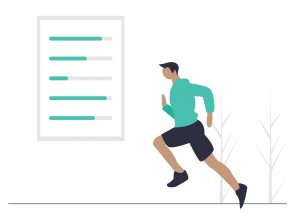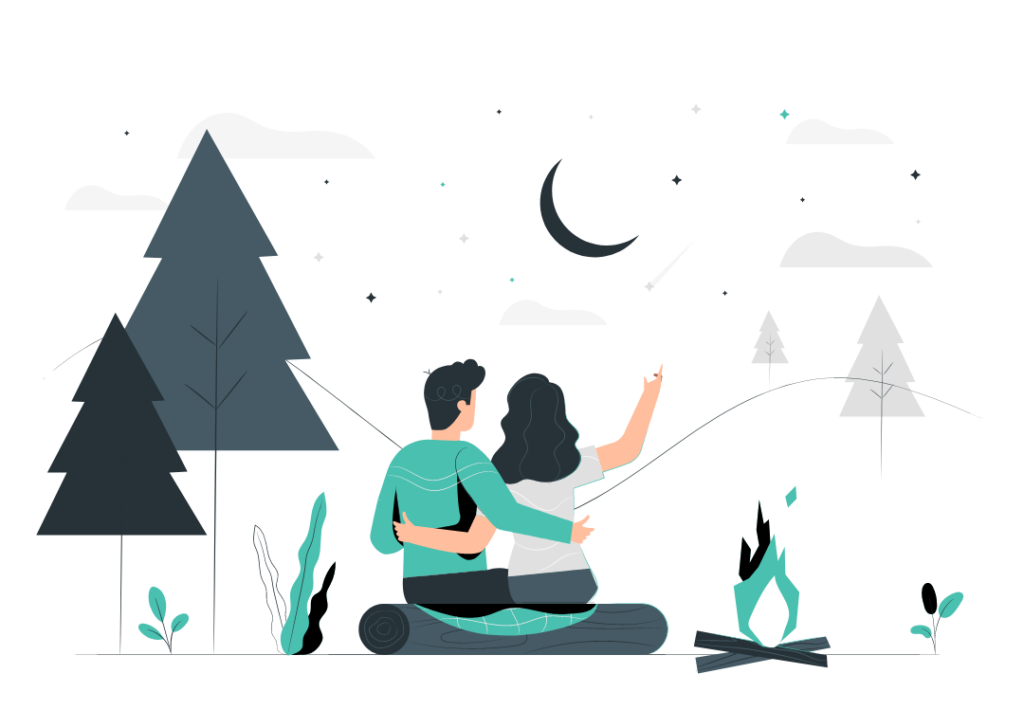
How Caregiving Taught Me to Endure
Just two months after Patrick began volunteering at a hospice, he became a full-time caregiver for his partner’s dad.

Andrew’s dreams of exploring life away from home, as a college student, were interrupted when his father was diagnosed with Multiple System Atrophy. He returned home to care for his father, mother, and brothers. Andrew recounts how running and writing helped him to process his overwhelming emotions, how breaking down his big goals into smaller ones allowed him to stay focused, and the unforeseen long-term effects of caregiving he still feels today. This is Andrew’s story.
As told to Open Caregiving and lightly edited to enhance readability while preserving the author’s voice.
Hi, my name is Andrew. I’m a 36-year-old millennial man living in California. I was a caregiver for my father for ten years.
When I began caregiving, I was a freshman at university and worked multiple jobs. I stayed home and commuted to school.
My father had one of the earlier cases of Multiple System Atrophy. By the time I was in college, I wanted nothing more than to get away from home and particularly my father. But I stayed to help him, my mother, and my brothers.
Don’t expect friends and family to really understand what you’re going through. You won’t ever make anyone really understand it. You need to find other ways to express and process your overwhelming emotions in a healthy manner.
I gravitated toward running and writing. I could track my progress with running. It’s inexpensive and as easy as putting on some shoes and stepping outside (for most people, anyway). Writing was a double-edged sword for me, though. It’s also inexpensive, can go as long as you want it to, and it’s as easy as grabbing a pencil and paper and finding a cozy spot to write. Poetry allowed me to process my emotions, reflect on them, and express them. But they were so personal and sometimes dark, I didn’t feel comfortable sharing them with anyone, which took away from the validation of those expressed feelings. Then again, what if I had never bothered to process and reflect and express at all, for all of those years?
When my father finally passed away, after a decade of caregiving, it was very sad. I grieved. But I made my peace, and I was ready to move forward. I don’t think most people are, especially after so long.
What still surprises me even years after the fact is how much this affects you in the long term. From your mindset on goal-setting to your personal relationships, and everything in between.
Eight years later, I still sometimes get apprehensive about planning things, whether they’re in the short term or months away. I got so used to waiting to see what my father was going to feel like or anticipating having to cover someone else’s watch. I hate to cancel and be flaky. So for most of those ten years, I didn’t bother to commit myself to plans I feared I wouldn’t be able to keep. Eventually, friends stopped calling me.
I’m frugal because of it, which is both good and a little obnoxious! My family did alright during those years, but I’m a prideful man and always did my best to stay within my means and not be a burden for anyone else. I worked so many jobs and trudged through college, saving and skipping simple joys that most people my age waited their entire childhoods to embrace, like jet-setting and concert-going. I couldn’t get started into my career until the end of my watch, when I was 28. Even then, I was barely scraping by. So that definitely stuck. I don’t like it because that’s not how I was before caregiving, and I think it’s more fun to be a little careless with your money. But having a child also changes that, and should make you more frugal, anyway. So I guess we can mark that under the “positive” category.
It affected my relationships, too. As the years went by, I could see who my true friends were. I’ve lost contact with many people from those days, and I’m okay with that. I’m guarded against new people for various reasons, but I find myself being more connected to people who have also carried a burden of some sort.
At the beginning of caregiving, I was in a relationship with my first love. It was already straining because we were young and immature, but it ultimately came down to my girlfriend wanting to see the world and seek out opportunities elsewhere, which she was fully entitled to. It wasn’t a life I could embrace or support at the time. That was a difficult break-up for me: a true moment of helplessness and awareness that I was not in control of my life, and I had no idea when I would finally be able to. My next serious girlfriend who I later married (and eventually divorced) was amazing for loving me and committing to a relationship, despite the dire straits I was in. Looking back, I wouldn’t have dated myself, haha! We had our own issues, as everyone else does, but that extra weight of my situation and the conflicting emotions I was still dealing with didn’t help at all.
Dating now is weird. I mean, it is for everyone, I think? But how do you explain to someone what you’ve been through? It was the first decade of my adult life: there isn’t a single part of my life now that wasn’t affected by it in some way or another. It gets tiring to tell it to new people. But I suppose it also acts as a nice mini-test to see how well a potential partner can listen and be empathetic.
I was fortunate to share caregiving duties with family members and some hired help. I could still attend school and work and (try to) maintain a social life. But it was extremely difficult, not just from a logistical perspective but more so from a mental-emotional one.
As an ambitious college student and later a new teacher, I found that I had to focus on breaking down my big goals into smaller ones. College took me 8 years to complete. I would never have made it if I didn’t stay focused on immediate goals and literally took things one day at a time.
I think everyone can find some kind of talent, hobby, or habit that brings them joy or a sense of accomplishment. I see it and nurture it all the time as a teacher. It’s hard to deal with another person’s ailments that are out of anyone’s control and to also deal with how your own life might be limited. If we can find something that can be accomplished in small doses, which brings us a sense of control, confidence, or simple joy, then I think that’s the move.
I would look up a support group on Facebook that focuses on caregiving for the specific ailment you’re helping to treat. Those people are there to listen, offer advice, and offer other resources and information. You are also a knowledgeable, wise, and empathetic person, and someone else would love to hear your advice and experiences.
I would have told myself, in the beginning, to try to be more present with my father. In the beginning, we didn’t know what he had or how much time he had left. I didn’t know that even though he would live for years, he would lose his voice. So I would have asked him more things and listened. I should have found old photographs to show him and let him tell me stories. I should have tracked down his old friends and far-flung family members to come see him. I should have challenged myself to take him on road trips, while it was still possible.
Every caregiver’s experience is different. Some are filled with love and selflessness and sacrifice, and others are stories of conflict and struggle and sadness. While the circumstances of these ailments are out of our control, we as caregivers still have at least some control over our own actions and emotions. The outcome of your story might not be able to be changed, but the way your story is told can.
You can read the full story of my father on my Medium post, Words From My Father: A Narrative For Us Fathers and We Children.

Just two months after Patrick began volunteering at a hospice, he became a full-time caregiver for his partner’s dad.

As a child, Jill became her mother's primary caregiver after a stroke paralyzed her. She later cared for her father and older sister.

Steve cared for his wife, who had Primary Lateral Sclerosis, for 15 years when she suddenly had a stroke. That was a wake-up call.